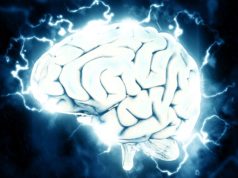Grafting stem cells from one part of the brain into another can restore important cognitive functions such as memory and mood after brain injury and also trigger the growth of new neurons, a US research team has found.
The study, published in the current issue of Stem Cells Translational Medicine, was conducted by researchers from the Institute for Regenerative Medicine at Texas A&M Health Science Center, Duke University Medical Center and Veterans Affairs Medical Centers in Temple, Texas, and Durham, USA.
Scientists testing the treatment on brain-injured rats grafted neural stem cells from the brain’s subventricular zone into the hippocampus in one group of animals but not another. Mood, memory and mobility significantly improved in the rats that received the stem cells.
“Our procedure brought back key functions in the part of the brain that regulates emotional outlook, learning, memory and spatial navigation,” said Ashok Shetty, director of neurosciences at the Texas A&M institute, senior investigator who helped lead the study. “We also learned that the neural stem cells we grafted into the brain’s hippocampus had the ability to survive, migrate, differentiate and thrive where there had been neural loss before.”
The rats received the stem cells five days after they were injured and were evaluated six weeks after the graft took place.
The team’s work also indicates that neural stem cells from the subventricular zone and hippocampus may be suitable for treating neurodegenerative disorders, but more testing is needed in specific disease models to determine whether fetal, postnatal or adult brain stem cells will work best, said Bharathi Hattiangady, assistant professor of molecular and cellular medicine at the Texas A&M institute, who also took part in the study.
The hippocampus, one of the first regions of the brain to suffer damage in Alzheimer’s disease, also can be damaged by trauma, stroke, lack of oxygen, encephalitis and some forms of epilepsy.
The subventricular zone is a known site of adult neurogenesis in the brains of adult rodents, monkeys and humans.
“Memory and mood disorders are difficult to treat. Having a readily available source of stem cells that could treat these conditions would be a major advantage for cognitive brain disorders,” said Anthony Atala, editor of Stem Cells Translational Medicine and director of the Wake Forest Institute for Regenerative Medicine. “The authors show that this is a strategy worth pursuing further.”
The National Institute of Neurological Disorders and Stroke and Department of Veterans Affairs funded the study.












